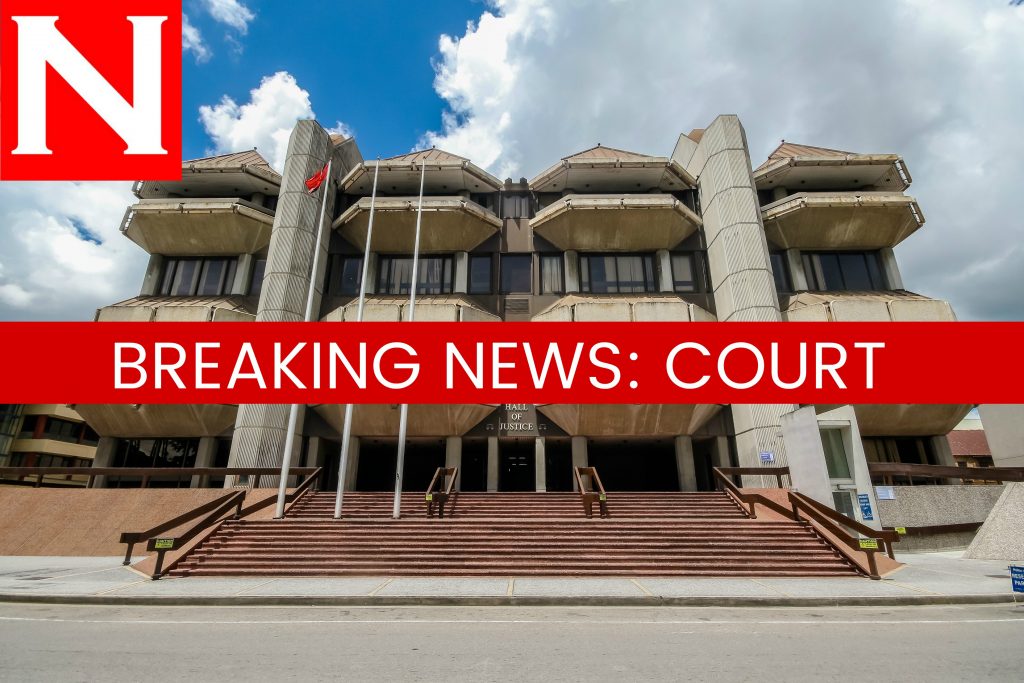Privy Council questions appeal

A murder accused who was 16-years-old when she was charged and who challenged her detention at the Women’s Prison has lost her appeal at the Privy Council.
In a written decision, the five judges – Lady Hale, Lord Kerr, Lord Wilson, Lord Hodge and Lady Black – questioned why the appeal before them was even pursued since the accused turned 18 in 2016 when the high court and the court of appeal ruled in her case.
“Astonishingly, this is an appeal, brought as of right, against an interim order made by the Court of Appeal in constitutional and judicial review proceedings as long ago as November 2015, with judgment delivered in April 2016. The proceedings themselves were heard in February 2016 and judgment delivered in May 2016.
“Even by then, the acute dilemma to which the unusual facts of the case gave rise had passed. In such circumstances, the Board asks itself whether it was appropriate for this appeal to be pursued, as it serves no useful purpose other than to draw attention to the dilemma in question,” Lady Hale wrote in the opening paragraph of the ruling.
The accused was 16 years old when she and her younger brother were charged with the murder of Dulraj Deodath.
Under the Bail Act, a person charged with murder cannot be granted bail and when she first appeared in court, she was remanded by former chief magistrate Marcia Ayers-Caesar to the Women’s Prison, Arouca.
After certain sections of the Children’s Act 2012 were brought into force in May 2015, she turned 17, and filed a lawsuit, through her attorney Anand Ramlogan, SC, challenging her detention since the act provided that a court should remand a child, who is not released on bail, to a community residence.
The matter was dealt with promptly by Justice Devindra Rampersad who on September 2, 2015, gave various directions which included an order that the Children’s Authority conduct an evaluation and report in respect of St Jude’s School for Girls (then an industrial school) or such other facility which might qualify as a community residence with a view to identifying a suitable community residence.
The Children’s Authority filed evidence that there was no suitable centre for accommodating the appellant in accordance with the Children’s Act, and Rampersad refused to grant conservatory orders that would breach the Bail Act and the Children’s Act.
In April 2016, appellate court judges Peter Jamadar, Allan Mendonca and Nolan Bereaux, ruled that Rampersad had the power to grant the mandatory orders made.
They also rejected her argument that the State had lost the power to detain her and she should be released into the custody of her mother.
Her and her brother’s substantive constitutional claims for redress were heard by Justice Vashiest Kokaram and he ruled on May 24, 2016. He declared that the State had no jurisdiction to remand her to the adult women’s prison and quashed the order.
He also declared that decision violated her constitutional rights and awarded her damages for cruel and unusual treatment or punishment. When he did so, she had already turned 18.
“That is why the dilemma had passed and no useful purpose can be served by pursuing this appeal: appeals are against orders, not against the reasons given for making them,” Lady Hale ruled.
Kokaram’s order for compensation was overturned by the Court of Appeal in December.
Nevertheless, Lady Hale said the local appellate court, when considering the balance of harm, took into account the best interest of the appellant by not releasing her to her mother’s care and the law of the land as it related to bail.
“It also took into account that the appellant was almost 18 years-old and thus close to no longer being a child and that attempts were being made to bring her accommodation “as close as is possible in an adult prison to the standards now applicable to minors held on remand,” the judgment said.
Lady Hale said when considering the balance of harm in cases involving children, the best interests of the child should be a primary consideration as required by article 3.1 of the United Nations Convention on the Rights of the Child.
“The Board needs no convincing that it is not in the best interests of any child to be incarcerated in an adult prison, mixing with adult offenders, and subjected to same accommodation and regime to which they are subjected.”
But she added, article 3.1 did not mean that the best interests of the child are the paramount consideration.
“They can be outweighed by the cumulative effect of other considerations as long as no other consideration is treated as more important.”
In dismissing the appeal, Lady Hale said they were not concerned “with what happened next, with whether the order made by the Court of Appeal was complied with, and with the current state of the law and practice relating to the detention of children in TT.”
“It can only express the hope and expectation that TT is doing its best to comply with its obligations under the United Nations Convention on the Rights of the Child, an international instrument which has done so much to educate us all in the special status and needs of all our children.”


Comments
"Privy Council questions appeal"